As you know, the season of Lent has been buried under a great weight of superstitions and silly practices that make us want to run far far away from any association with those things. At the same time we understand that just because certain branches of the church abuse a thing – whether raising hands in worship, or praying a written prayer in unison – it doesn’t mean that there is no wisdom or obedience in the practice, and it doesn’t mean that we should abandon it altogether.
The entire Church calendar provides us a rhythm by which to number our days with a heart of wisdom (Psa 90:12). When we mark our days and months by the events in the life of Jesus, we are celebrating and remembering the most important events in all of human history. If we strip our calendar of the seasons of the Church year, we will still have holidays, but they will only be the ones provided to us by the state (President’s Day, Labor Day) or the Hallmark store (Mother’s Day, Father’s Day). The events and people you recognize on your calendar, whether anniversaries or birthdays, are the things you value most. As Christians, we maintain that the birth, ministry, teaching, death and resurrection of Jesus are important enough that they deserve the highest place on our calendar.
Following the narrative of the Church calendar, we begin the new year with Advent, and the expectation of the second coming of the Lord Jesus, recalling as well the expectation of his first coming. That sets us up nicely for the feast of Christmas, in all of its twelve days, and we proceed from there through the season of Epiphany where we reflect on all the ways that Jesus appeared and revealed Himself as the Savior of the world. Then comes the forty days of Lent where we remember the forty days of fasting and temptation Jesus underwent in the wilderness as He battled Satan and suffered on our behalf. The last week of Lent is often referred to as “Holy Week” wherein we walk through the events of the last days of Jesus earthly ministry leading up to His crucifixion. The following Sunday we celebrate the great high feast of Easter, where we rejoice in the Resurrection of Jesus and then follow up with celebrations of the Ascension of Jesus and the descent of the Holy Spirit on Pentecost. The calendar wraps up with an extended period of “ordinary time” where we count the days after Pentecost and focus on the life and growth of the Church inwardly and outwardly, until the harvest is ripe again, and we are ready to enter Advent anew.
This forty-day period, not counting Sundays, leading up to the high feast of Easter has been known for centuries as the season of Lent. “Lent” comes from the old English word “lencten”, which means “spring”, and closely related to the word “lengthen”, referring to “the lengthening days” that comes this time of year.
In the ancient Church, and in certain parts of the world throughout history baptisms of new converts were done on Easter, and thus this season before Easter was traditionally used as a time of catechesis. Converts were instructed in the doctrines of the Christian faith and thus prepared to enter the church not as novices, but as well-trained disciples.
Because the forty days also bring to mind Jesus’ forty-day fast in the wilderness, His battle with Satan, and His suffering on our behalf, this has also been used as a time of fasting. When we struggle with our sins and have an acute sense of our own lack of discipline over our minds, tongues and bodies, it is appropriate to “go without” certain good things to help us to recall our sinful conditions and the fact that we don’t deserve all the good things that God has given us. It is also appropriate to fast in order to pray for our suffering and persecuted brothers and sisters here and around the world.
However, in our day, the fasting aspect of Lent has become something of a joke, with people “giving up” M&M’s or Coke or Facebook from now until Easter. Not only do they give these things up, but they let everyone know that they are giving them up, in direct defiance of Jesus’ instruction in Matthew 6 which requires discretion and privacy when fasting.
The purpose of this season is not to try to become a public martyr for giving up donuts for forty days. The purpose of this season is to reflect on the work of Jesus on our behalf, and to soberly reflect on our own sinful conditions. If fasting assists us, then by all means fast, but fast from food, not Twitter, or gossip magazines, and above all, fast from sinning. That’s what we’re after ultimately. However you fast, always break the fast on Sunday. The Lord’s Days are not fast days. They are feast days, and not included in the season of Lent. (You’ll notice that in various places we refer to Sundays “in” Lent and not Sundays “of” Lent.)
It is also helpful to use this as a time of catechesis and training for you and your family. Go through a catechism or confession after supper at night these next forty days. Pick up that fat theology book that you bought several years ago and never had a chance to crack open – divide up the pages by forty and finish it by Easter. Tackle a section of the Bible you aren’t that familiar with – the prophets or the later histories. Pick a couple of Psalms and concentrate on committing them to memory. Or commit yourself to becoming more familiar with the book of Psalms as a whole.
There are many ways to be discipled by God’s Word these forty days, and to enter the feast of Easter an even stronger and more faithful Christian. I pray that you will find this Lenten season a sober, but joyful time of growth and maturation.

